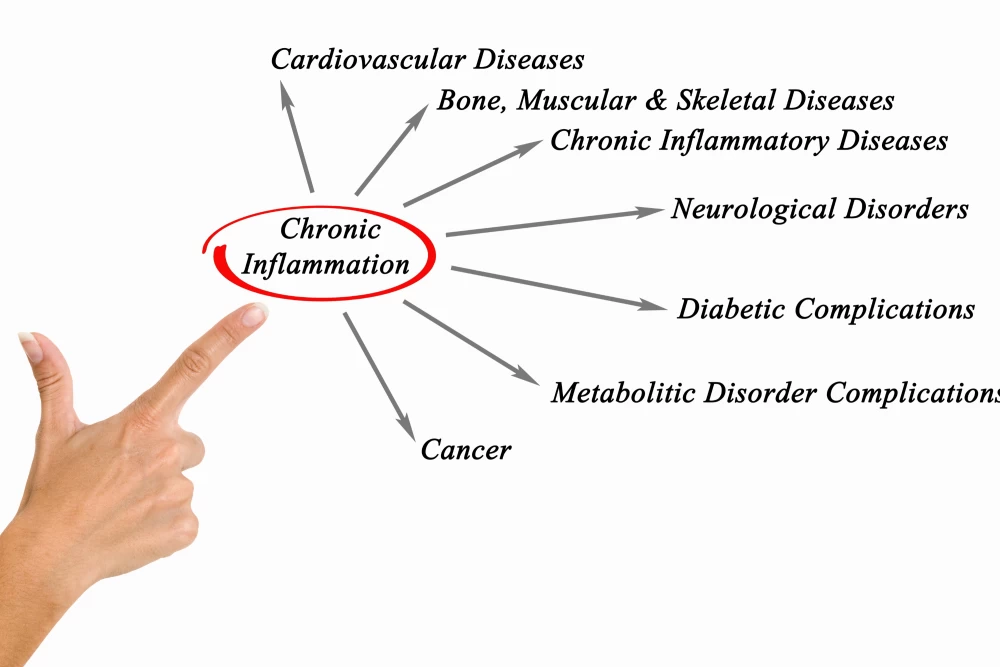
- 26th April 2023
Table of Contents
What is Intermittent Fasting?
Periods of fasting are interspersed with periods of normal eating in a diet known as intermittent fasting (IF). The 16:8 method, the 5:2 diet, and alternate-day fasting are all examples of intermittent fasting. While there is some evidence that intermittent fasting (IF) can help with things like weight loss and insulin sensitivity, there is less evidence that it can help with inflammation. Although inflammation is the body's normal response to injury or infection, it can become chronic and contribute to conditions like arthritis and heart disease. Some research indicates that autophagy, the process by which cells degrade damaged proteins and other cellular components, can help reduce inflammation levels in the body during intermittent fasting. It's important to remember, though, that the effects of intermittent fasting on inflammatory diseases like arthritis are still hotly contested in the scientific community. While some studies have shown that intermittent fasting can help people with autoimmune diseases by lowering their inflammatory responses, others have argued that more studies are needed to draw any firm conclusions.
Inflammation and Intermittent Fasting
Fasting at regular intervals is known as intermittent fasting (IF), and it's become a popular diet trend. Researchers have found that IF has anti-inflammatory effects, which could help people with inflammatory diseases like rheumatoid arthritis and asthma. Inflammation markers in the blood are lowered due to the metabolic changes that occur during fasting. However, not everyone can benefit from IF, and some forms can even be harmful to those who have preexisting conditions or take certain medications, such as those with diabetes. Make sure intermittent fasting (IF) fits in with your health goals and won't conflict with your current treatment plan by talking to your doctor before you start. More study is required to fully understand the impact of IF on inflammatory conditions, but there is some evidence suggesting that IF may have anti-inflammatory properties. In conclusion, people struggling with inflammation may benefit from intermittent fasting, but doing so should be done carefully and under professional guidance.
Benefits of Intermittent Fasting for Inflammatory Conditions

Because of its promising effects on a range of health issues, including inflammatory diseases, intermittent fasting is experiencing a surge in popularity. While inflammation is an important immune response, it can become problematic when it persists beyond its protective role. Researchers have found that patients with inflammatory diseases like rheumatoid arthritis benefit from intermittent fasting because it decreases inflammatory markers and alleviates symptoms. Autophagy, in which the body eats its own damaged cells and tissues, is facilitated by intermittent fasting. The removal of cellular debris, which can set off an immune response, aids in reducing inflammation. Pro-inflammatory cytokines are reduced and anti-inflammatory cytokines are increased as a result of intermittent fasting. Furthermore, oxidative stress and gut health, both of which have been linked to chronic inflammation, may be reduced by intermittent fasting. Intermittent fasting can protect the gut microbiome from free radical damage by lowering oxidative stress and encouraging the growth of beneficial bacteria. As a result of all these positive effects, intermittent fasting is being studied as a possible method for treating and preventing inflammatory diseases.
Risks of Intermittent Fasting for Inflammatory Conditions
Although intermittent fasting has been shown to have beneficial effects on many aspects of health, including weight loss and metabolic enhancement, it may not be appropriate for people with inflammatory conditions. Blood sugar levels may drop significantly during intermittent fasting because of the calorie restriction periods. Because the body's stress response system is triggered, inflammation can occur in people who already have inflammatory conditions. Additionally, oxidative stress and inflammation are both shown to increase during intermittent fasting. When free radicals and antioxidants are out of whack, the body experiences oxidative stress. When this occurs, inflammation and cell damage can result from the surplus of free radicals. In addition, severe or prolonged calorie restriction may negatively affect gut health by decreasing the diversity of gut bacteria, which is essential for the regulation of our immune system. In conclusion, intermittent fasting has the potential to improve health and well-being in many ways, but those with inflammatory conditions should carefully weigh the benefits and drawbacks before beginning the practise. Whether or not intermittent fasting is safe for you depends on your individual needs and medical history, so it's important to talk to your doctor before beginning a programme.
Tips to Maximize Results

First, take things slowly if you've never tried intermittent fasting before. To get started, try going without or postponing breakfast. You can achieve your goal fasting time by gradually increasing the length of your fast. Second, make sure you drink plenty of water and other non-caloric beverages like tea or coffee while you're fasting. Keeping yourself hydrated is a simple way to stave off hunger until mealtime. Foods high in nutrients, such as vegetables, fruits, whole grains, lean proteins, and healthy fats, should be eaten to break a fast rather than processed snacks or junk food. Eating a healthy, well-rounded diet can improve your health and reduce inflammation. Pay attention to how intermittent fasting affects your symptoms if you have an inflammatory condition like arthritis or Crohn's disease. If you have any doubts about the diet's safety, medical advice should be sought. Consistency is the fifth and most important rule of intermittent fasting. Maintain a routine that works for you, and don't give up if you don't see immediate results.
Careful Considerations
In addition to its growing popularity as a means of shedding excess pounds, intermittent fasting (IF) is being studied for its potential anti-inflammatory effects. C-reactive protein and interleukin-6, two inflammatory markers, have been shown to decrease in response to IF. Conditions like rheumatoid arthritis and asthma may benefit from this decreased inflammation. However, people with inflammatory conditions should be aware of the potential risks involved in IF. Some people, especially those with autoimmune diseases, may experience an increase in inflammation if they fast for an extended period of time. During non-fasting times, it's also crucial to make sure nutrient needs are met to avoid deficiencies or the worsening of symptoms. In general, people with inflammatory conditions should think twice before beginning an IF routine. If you want to know if this approach is right for you, talking to a doctor and keeping close tabs on your symptoms can help.














